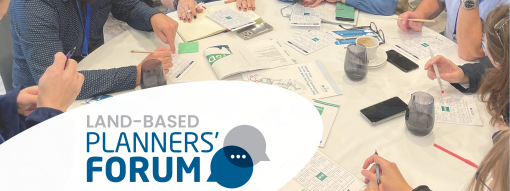Update of the VASAB Long-Term Perspective for the Territorial Development of the Baltic Sea Region
VASAB ministers in Tallinn in 1994 adopted the first commonly agreed transnational vision of the BSR which played a significant role for the spatial development of the whole BSR. It outlined spatial development perspective, values and overall goals for the BSR and defined strategies and common actions to make vision come true. This vision was updated in 2009 with VASAB Long-Term Perspective for the Territorial Development of the Baltic Sea Region (hereinafter – LTP), that highlighted territorial development trends and challenges, as well as presented territorial cohesion perspective for the BSR in 2030.
During the last decade new challenges and trends have arisen at global and BSR level, such as pandemic reality, demographic trends, impacts of the climate change on the environment, living conditions and territorial pattern of activities, digitalization, vulnerability of the Baltic Sea etc., therefore VASAB Committee on Spatial Planning and Development of the Baltic Sea Region (hereinafter – VASAB Committee) has decided to update the LTP.
Updated LTP will support different stakeholders in the BSR countries in policy making to cope with challenges with a trans-national relevance for the sustainable territorial development, and to better anticipate and prepare for the future development paths towards territorial cohesion perspective of the BSR till 2040. Particularly, it will propose necessary recommendations targeted for transnational and cross-border cooperation and synergies in such fields as settlement development, accessibility to efficient transport and ICT, integrated energy production and supply, maritime spatial planning and management.
For the next two years LTP update will be steered by VASAB Committee and led by a partnership of Spatial Foresight GmbH and Nordregio, both together having a long experience in EU policies, territorial cooperation, visions and scenario development, development and implementation of strategies, a considerable focus on the Baltic Sea Region and a long track record of working together.
Spatial Foresight is well known European research and consultancy company in the field of territorial development with explicit experience on analysis and evaluation, process facilitation, strategy development, territorial foresight processes, as well as European and comparative studies. Nordregio is a leading Nordic research centre for regional development and planning under the Nordic Council of Ministers and its primary research and competence areas are: regional, rural and demographic development, urban planning and sustainable development, regional innovation and green growth, governance and policy.
Stay tuned and get involved!
The update process is intended to be open, participatory and co-creative. It will engage stakeholders at different governance levels (EU, BSR and national), including the thematic coordinators of EU Strategy for the Baltic Sea Region, other pan-Baltic organizations and national and local key stakeholders through series of events and targeted thematic workshops in various networking platforms within EUSBSR, Interreg Programme, European Commission, Russian Federation and others.
Acknowledging that the involvement of diverse knowledge and opinions would additionally contribute to the LTP update, those willing to contribute to the LTP-update process or to take part in events, are kindly welcome to sign up to our stakeholder list.
Kai Böhme, Spatial Foresight: “The world is constantly changing with numerous trends and changes taking place daily at global and EU level. Different trends and developments may play out differently in different types of territories and have different consequences at global or EU level. The dawn of the new decade came along with an unprecedent event that nobody was expecting and nobody was prepared for: a pandemic. The COVID-19 pandemic is the latest proof of sudden global changes, which has shaken most aspects of businesses’ progress and people’s lives, questioned political decisions, social structures and economic systems bringing consequences that are yet to be fully seen.
No one can predict the future, however, one can prepare for it. Change is inevitable, but evolution and adjusting to changes is a choice. VASAB has been forward looking and has shown that developing visions and setting goals for the future is a priority for the intergovernmental cooperation. Its long-time approach in developing and updating its visions shows that continuously evolving and adjusting to these changes is necessary to prepare for the future. For this, updating the VASAB Long-Term Perspective is important to be up to date and ready.”



